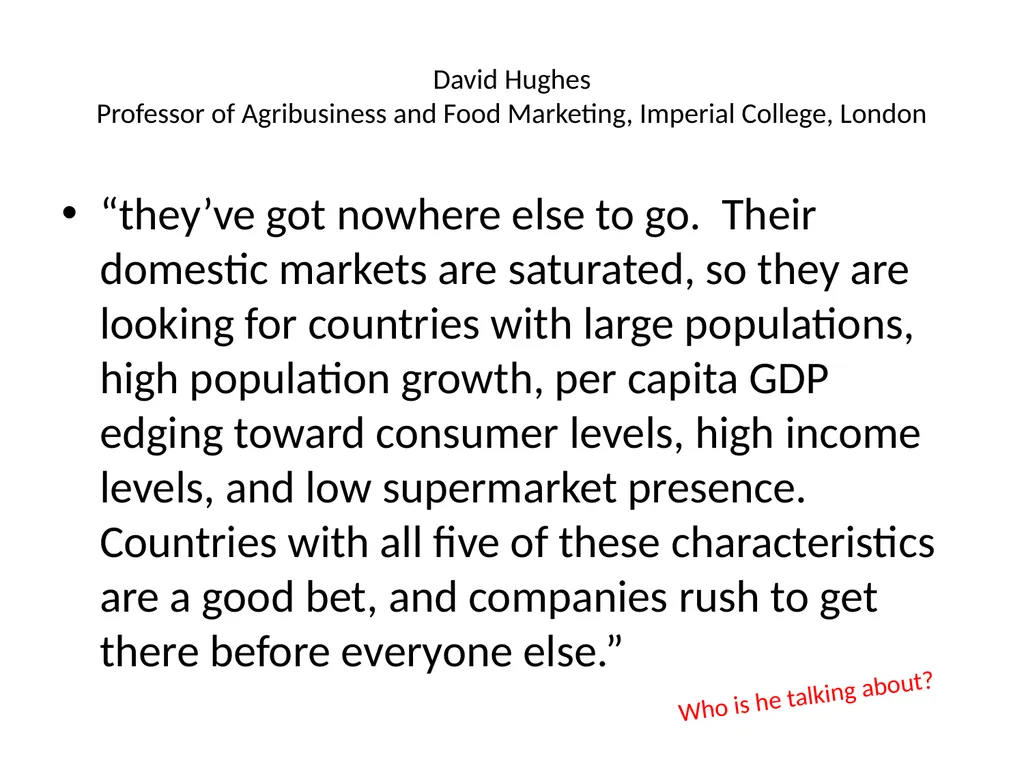
Author : mitsue-stanley | Published Date : 2025-05-28
Description: David Hughes Professor of Agribusiness and Food Marketing, Imperial College, London theyve got nowhere else to go. Their domestic markets are saturated, so they are looking for countries with large populations, high population growth, perDownload Presentation The PPT/PDF document "" is the property of its rightful owner. Permission is granted to download and print the materials on this website for personal, non-commercial use only, and to display it on your personal computer provided you do not modify the materials and that you retain all copyright notices contained in the materials. By downloading content from our website, you accept the terms of this agreement.
Here is the link to download the presentation.
"David Hughes Professor of Agribusiness and Food"The content belongs to its owner. You may download and print it for personal use, without modification, and keep all copyright notices. By downloading, you agree to these terms.













